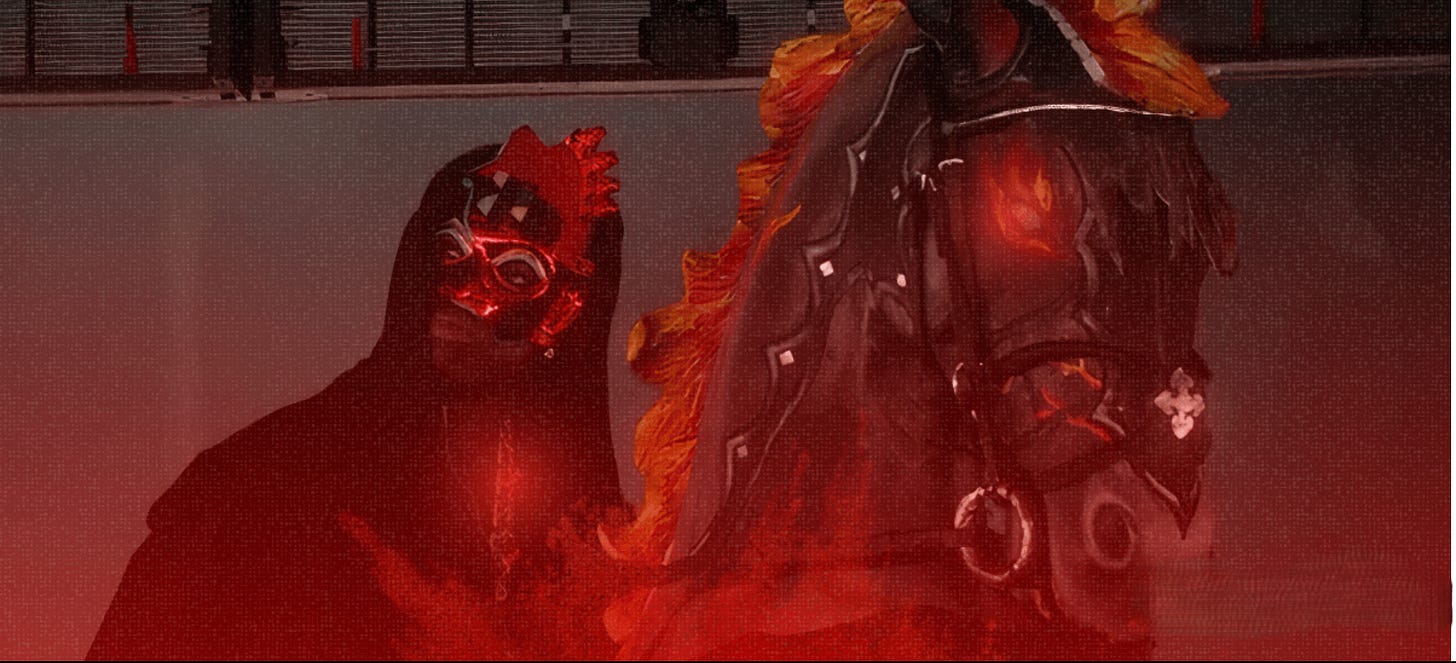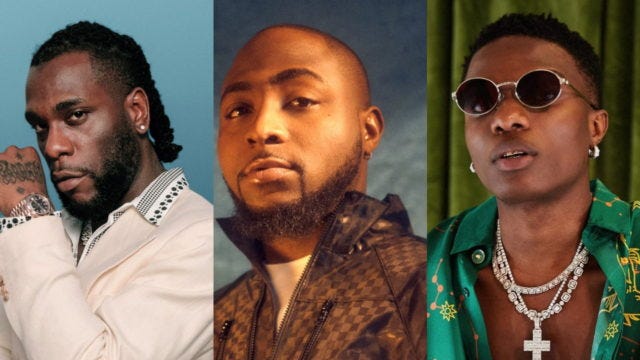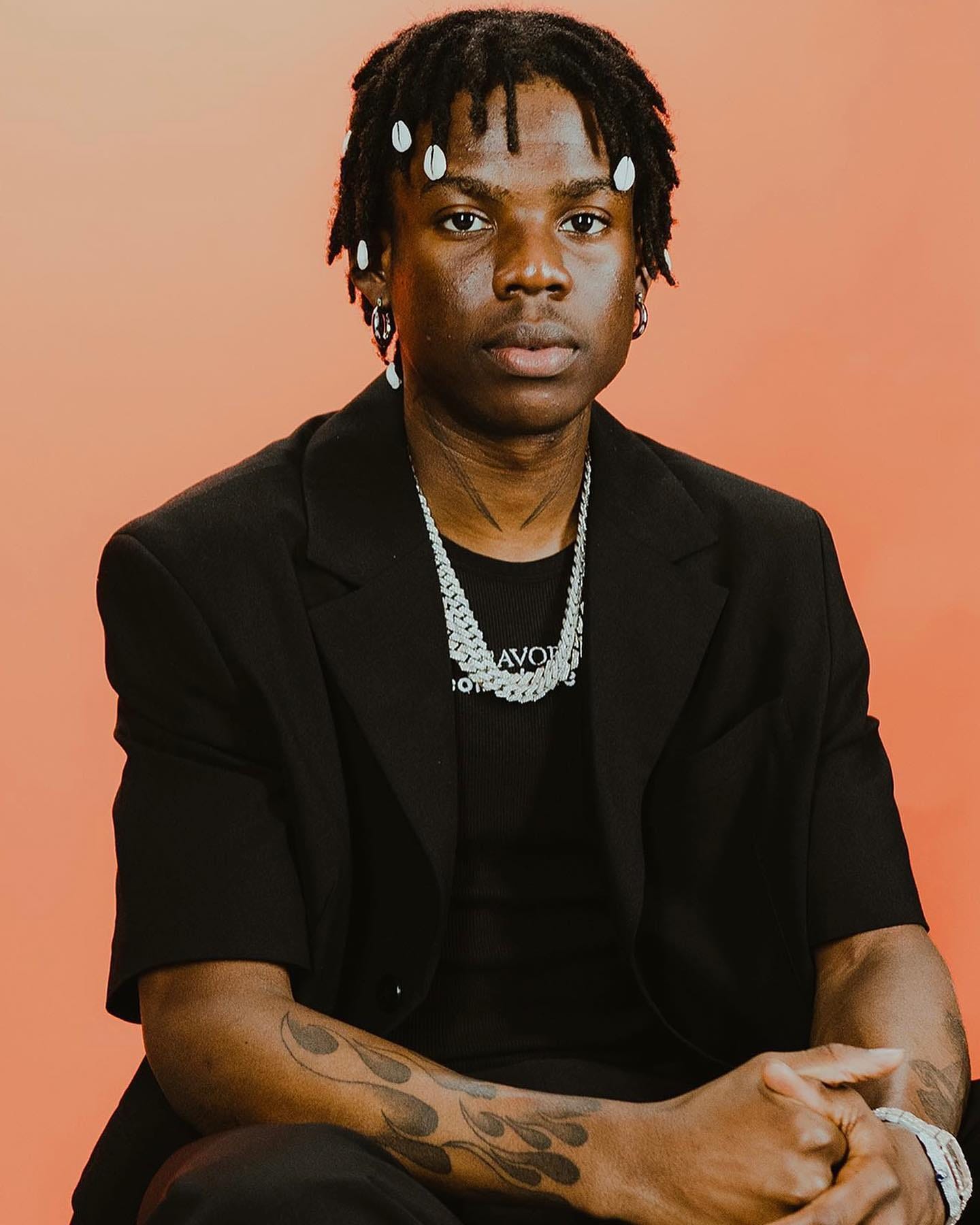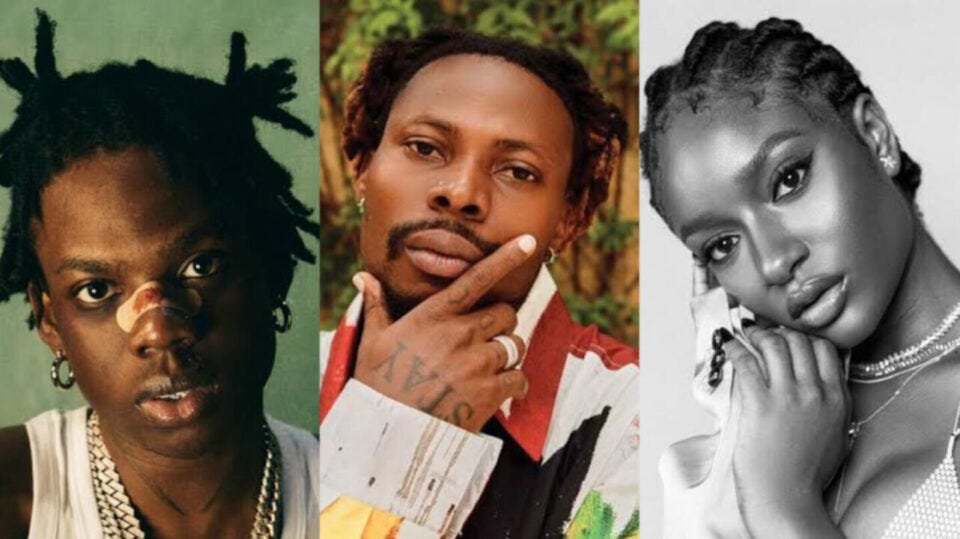2024 is the “year of the biggest.”.
The biggest rap beef, the biggest scandals, and the biggest breakouts in Afrobeats.
Some were settled forever, like Drake vs Kendrick. Some have us rattled, like Diddy and his bottles of baby oil.
But some are taking a new face altogether.
Like the debate on who Afrobeats’ biggest act is.
For the longest time, there were only three dawgs in the race - Davido, Wizkid, and Burna Boy.
Now, there’s a fourth. And he’s threatening to outshine the holy trinity.
But where did the “Big Three” talk even come from?
The term "Big Three" is often used to mean the three top figures in any field - kinda like how the big three for Nigeria would be corruption, stress, and chaos.
But its origins are barely Nigerian.
It was first used in rating Anime, describing top-tier shows like One Piece, Naruto, and Bleach when they had all the hype.
In Afrobeats, the "Big Three" is the same - the biggest musical acts of a certain period. In the 2010s, it was Wizkid, Davido, and Olamide.
And the criteria - while unspoken - were clear:
A long and successful career
Strong love from the streets
Cultural representation - often seen as Yoruba
Lots of chart-topping hits
And an XY chromosome (I’m sorry, Tiwa Savage 👋🏾)
But times change, tastes shift, and new cats blow up.
And in 2020, the trio got shuffled out - when Burna Boy dropped the hit track “Ye”.
He went straight to stardom, getting a Grammy nomination and winning one a year later.
But the criteria remained the same – local hits, street cred, and masculine gender.
The Great Reshuffle is here again - and this time, the Big Three is becoming the Big Four.
The new entrant? A young artist called Rema.
Rema's rise began in 2019 with his breakout hit "Dumebi."
Since then, he has released two studio albums, four EPs, and over thirty singles.
However, some critics argue that Rema is too young and "new" to be included in the "Big Three" conversation. People believe that for a career so young with only one mega-hit, he should be humble.
For them, his career is too young and he only has one mega-hit, Calm Down, and will still need to plant a few more trees to get his flowers.
But this curiously ignores the fact that the song:
Went 6x platinum
Topped the charts globally for ten weeks
Crossed over 5 billion streams across all platforms
And won 14 global awards
Maybe that’s what happens when you have a hit so good, that it gives everyone else amnesia.
The lack of admission that Rema may very well be on par - or even higher - with Afrobeats’ three musketeers is proof that the basis for a Big Three is based on anything but facts.
Rethinking what makes an Afrobeats artist “Big”?
It’s not about quality, it’s not about hits, and it’s certainly not about talents. It’s nostalgia and cultural image.
It’s why you’ll never hear Tiwa Savage’s name in the Big Three conversation despite being one of the first breakout international acts.
It’s why Tems is still seen as fringe and Alte despite having enough numbers to carry the whole genre.
We must throw out the rulebook and rewrite the criteria for ranking our biggest stars.
The debate around Rema's inclusion sparks big questions:
What should qualify an artist for the "Big Three"?
If longevity is the point, Burna Boy should not overshadow Olamide, who has consistently delivered hits and nurtured new talents like Lil Kesh, Adekunle Gold, Fireboy, and Asake.
If street cred matters most, why isn’t Kizz Daniel part of the conversation?
Kizz Daniel has consistently dominated local music charts for several years, with multiple hits each year.
Since 2014 - despite record label troubles that made him switch from Kiss Daniel to Kizz Daniel - he has maintained a strong presence in the industry.
His 2022 hit "Buga" was only extra proof.
Also, if tribal representation is considered a significant criterion, Burna Boy's presence is questionable.
The truth is that one criterion rules above all. And it’s cultural influence
However, the current conversation focuses on global impact—artists who have won major awards, performed at significant events, and captured audiences beyond Nigeria and Africa. Rema fits this mold; he has made waves on international music charts and attracted a diverse fanbase, including not just Nigerian expatriates but also international listeners.
Rema's influence extends beyond music; he has even shut down cities outside Lagos and received endorsements from state officials. While he may be early in his career, his achievements align with the evolving criteria for what it means to be part of the "Big Three."
The Rise of a "Big Four"
Rema's emergence does not push anyone out of the conversation; rather, it expands it to a "Big Four." This shift reflects a broader trend in the music industry, similar to the "Big Four" in finance.
Culturally, there may be resistance to Rema's inclusion among the established giants, with some arguing that he is too young which means, he lacks humility. However, Afrobeats is more prominent than ever, and Rema undeniably represents its future.
Afrobeat as a genre has in the last few years split into two, the global very non-Nigerian audience and Nigerians living in Nigeria. This would mean that talking about Afrobeats giants can’t simply be based on what is happening in the motherland. It’s no longer just about the original pacesetters.
The conversation has moved beyond nostalgia. The music industry is evolving, and so must our understanding of success.
There is a general lack of knowledge or statistical evidence to support claims about artists' impact, which reflects broader issues in Nigerian politics and culture. Many Nigerians are not even aware of significant performances, such as Ayra Starr’s appearance at the Victoria's Secret Fashion Show.
Also, Rema's true fan base consists primarily of Gen Z, a demographic that is not yet in positions of power or influence within the industry.
Its 2024, the "Big Four" is Ayra Starr, Asake, Fireboy, and Rema. This redefined conversation acknowledges the dynamic nature of the genre and the fresh perspectives that emerging artists bring to the table.
what do you think? Leave your thoughts in the comment section below.
Please watch the full interview here.









I'm here for the controversy
😂